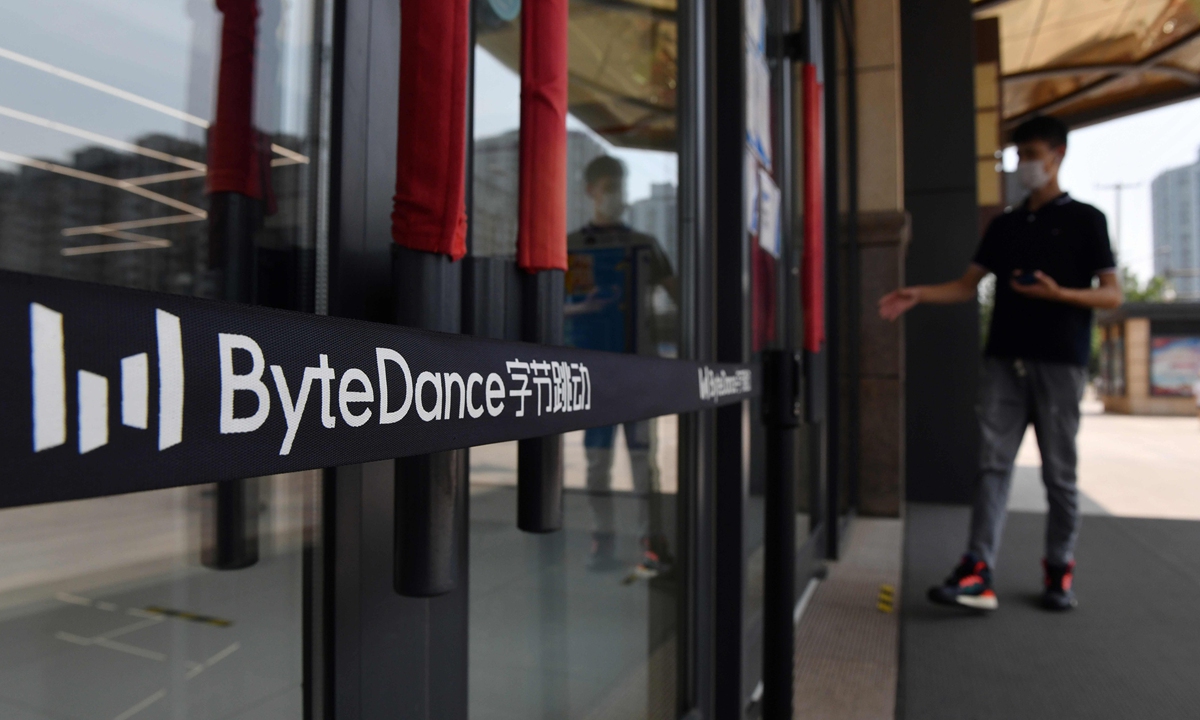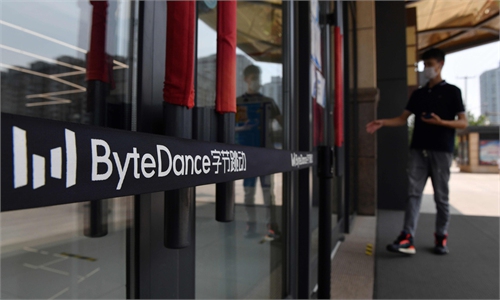
A company logo of ByteDance Photo:VCG
Chinese high-tech start-up ByteDance confirmed with the Global Times on Tuesday that it has established a team to conduct research and development (R&D) on artificial intelligence (AI) chips for cloud computing, the move of which was not unexpected as more Chinese internet firms have entered this area, analyst said.
On its official job seeking website, the owner of popular video-sharing platform TikTok has a dozen occupations related to chip development.
"It has become part of the strategic layout for internet giants to make chips by their own, and ByteDance should have entered the sector earlier," Liu Dingding, a Beijing-based independent tech analyst, told the Global Times on Tuesday.
Traditional trio internet giants in China, dubbed BAT - Baidu, Alibaba and Tencent, have all developed in-house chipsets.
AI chips for cloud computing, which can process data faster and more efficiently, has become a trendy direction, which fits the market demand more, said Liu, adding that "There is no need to do it from scratch, they can stand on the shoulders of predecessors, and do the most suitable according to their own abilities."
The increasing requirements for intelligent services by many enterprise verticals are pushing cloud service providers to rapidly upgrade their data centers with AI capabilities, which have already created an enormous demand for cloud AI chipsets in recent years.
ABI Research, a global tech market advisory firm, estimated that cloud service providers will increasingly rely on their own in-house AI chips and will be producing a total of 300,000 cloud AI chips by 2024, representing 18 percent of the global cloud AI chipsets shipped in 2024.
"For different internet companies, since the ecosystems they build are different, they have differences in chip performance requirements. In this case, customized chips may enable them to better reflect the value of ecology they are onto, thus in-house R&D could be a development path," said Liu.
ByteDance has also started R&D on server processors based on Arm architecture.
By joining the race of server chips, internet firms can reduce dependence on third-party supplies and reduce costs, Liu said.
The unfriendly external environment caused mainly by a US lead crackdown on Chinese high-tech firms has also acted as a wakeup call for domestic firms, taking the initiative to grasp core technologies and strengthen the semiconductor industrial chain, he noted.
Baidu has completed a round of financing for its Kunlun AI chip unit, which values the unit at around $2 billion, Reuters reported on Monday. The search engine giant is also considering making the unit a standalone company to commercialize its chip design capabilities.
Alibaba unveiled its first AI inference chipset, called Hanguang 800, in 2019. It released its first core processor IP Xuantie 910, which can be used in 5G networks, AI and autonomous driving earlier that year.


